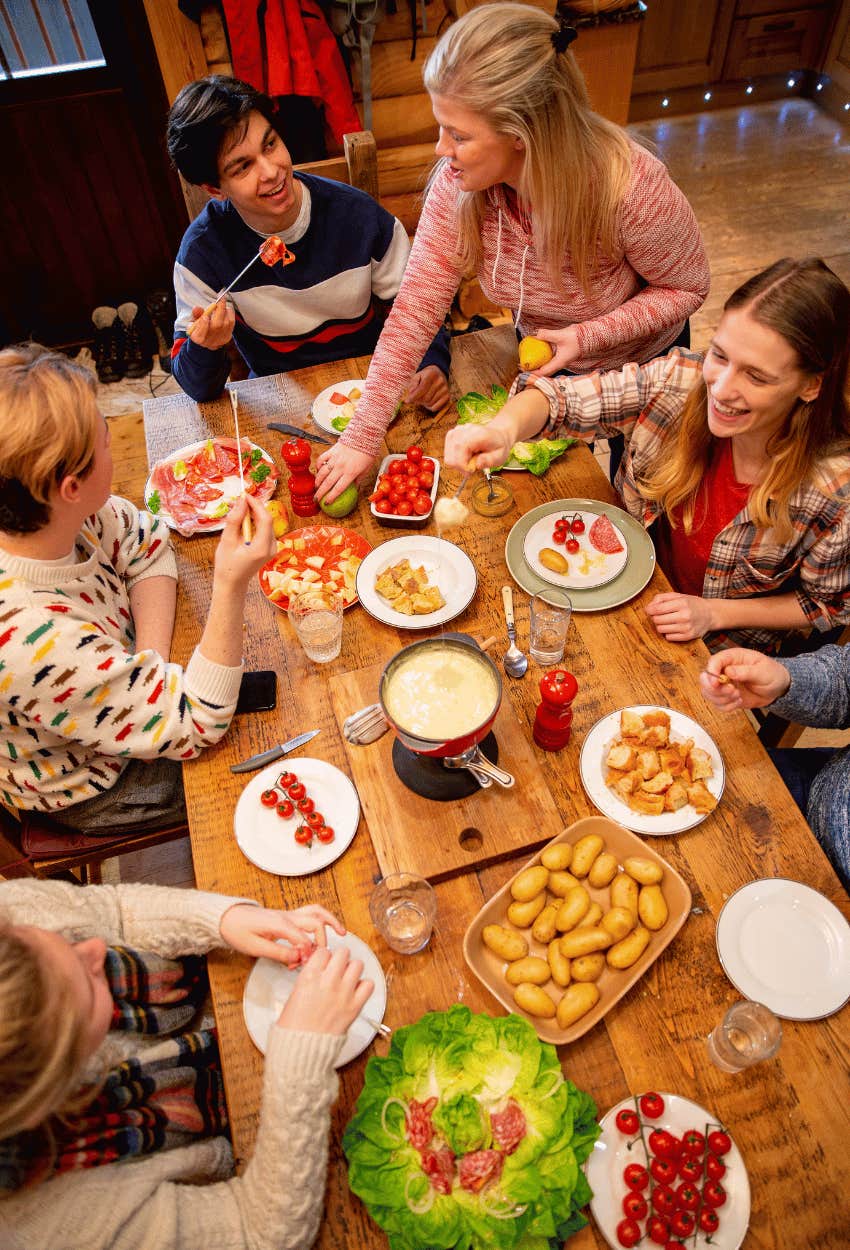Scientists Say The More Often People Do This One Thing Together, The Happier They Are
Could this be the "recipe" for happiness?
 Polina Tankilevitch | Pexels
Polina Tankilevitch | Pexels Between technology and how busy everyone is these days, eating dinner as a family has become a bit of an anachronism — like something out of an idyllic 1950s sitcom.
However, a recent study shows that it might just be the key to happiness for adults and children alike.
Scientists say that people who eat dinner together are happier and have better mental health.
The study, which combines data from more than 140 countries, found that sharing a meal pretty much instantly makes us happier.
 SolStock from Getty Images Signature | Canva Pro
SolStock from Getty Images Signature | Canva Pro
Each year, the University of Oxford's Well-being Research Centre releases its annual World Happiness Report, which lists, among other things, the happiest countries in the world and what sort of practices give them such high marks for well-being.
For 2025, Finland takes the top honor, and among the things contributing to the Scandinavian country's happiness is eating dinner together as a family, something that probably flies under most people's radar here in the U.S.
The analysis found that "people who eat frequently with others are a lot happier, and this effect holds even [when] taking into account household size."
Dining alone, which is increasingly common in the US, was found to have a negative impact on well-being.
 Вадим Маркин | Pexels
Вадим Маркин | Pexels
Solo dining is a growing practice in the U.S. In 2023, the Wellbeing Research Centre found that 1 in 4 Americans had eaten all of their meals alone the previous day, a 53% increase from 20 years before, and the practice is especially prevalent among young people.
In its report, they tied this practice directly to the much-vaunted "loneliness epidemic" in the United States, citing an analysis that found that the negative health impacts of loneliness and isolation — such as eating every meal by yourself, among other things — were roughly equivalent to smoking 15 cigarettes a day.
The analysis also found that frequently dining alone was actually similarly predictive of low levels of well-being to issues we tend to think are much more pressing, like insufficient income or a lack of employment. We are communal creatures, after all, and it turns out simply sharing meals with each other has tons of benefits.
Sharing meals was tied to better mood and better mental health, but only when cell phones were left off the table.
 Meruyert Gonullu | Pexels
Meruyert Gonullu | Pexels
Not only was sharing meals found to be predictive of a positive, stable mood, but it was also found to have all kinds of other benefits, especially where children are concerned. Kids who grow up in households that eat dinner as a family on a regular basis were shown to have everything from better diets to better school performance, as well as better mental health and less obesity.
But they found that cellphone use had a dampening effect on all of these positive impacts — showing that parents who enforce strict screen time rules around mealtimes really are on the right track.
The study also found that the more meals are eaten with others, the greater the impact. For happiest-in-the-world Finland, the average is 10 meals eaten with "someone you know" each week. Each additional meal eaten communally each week correlated to a .2 rise in happiness on a scale of 1 to 10, which might seem small, but scientists say it is statistically significant.
Ten meals together a week might sound a bit daunting to many U.S. families, where even dinner together can be a heavy lift, let alone two meals a day during the week. And scientists say there are also benefits to eating a meal alone here and there, too.
Like everything, it's all about balance. And as Yale psychologist Dr. Laurie Santos told Food & Wine, "the key is to bring more humor and fun conversation back" to households. She suggested using family mealtimes as an opportunity to play games like "Two Truths and a Lie" that will get everyone talking and interacting.
As the study shows, even just one family meal each week — no phones allowed — can make a major difference by giving our loved ones the one thing we innately, evolutionarily need most: connection.
John Sundholm is a writer, editor, and video personality with 20 years of experience in media and entertainment. He covers culture, mental health, and human interest topics.

